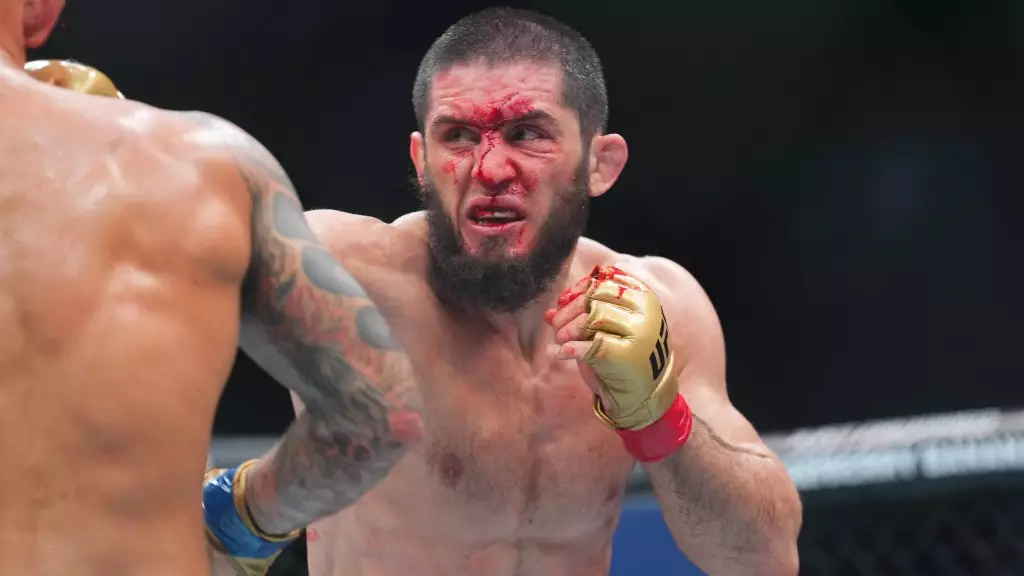Mixed Martial Arts (MMA) has seen a slew of champions and contenders over the years, but few names resonate as powerfully as Islam Makhachev’s. Holding a professional MMA record of 26-1, with an impressive 15-1 in the UFC, Makhachev has demonstrated immense skill and dominance in the lightweight division. However, as opinions vary, the question arises: who is truly Makhachev’s toughest opponent?
Makhachev’s career is characterized by almost unassailable success, but its peaks have not come without formidable opponents. From his sole knockout loss to Adriano Martins in 2015 to his more recent title defense against Dustin Poirier at UFC 302, the trajectory of Makhachev’s career is a testament to both his resilience and prowess. Javier Mendez, Makhachev’s coach, recently expressed his standpoint regarding the toughest competitor Makhachev has faced, pointing towards Poirier as the most significant challenge rather than fighters like Arman Tsarukyan and Alexander Volkanovski.
This assertion is intriguing; Mendez highlighted an evolution in Poirier that he had never witnessed before, suggesting a transformative level of skill and tenacity that made their match particularly challenging. This opens a broader discourse about the evolving nature of fighters within the sport. The landscape of MMA is not static, and as competitors grow, adapt, and refine their skills, past fights can take on new meanings and narratives.
Looking ahead, Makhachev is set to face Tsarukyan again, an opponent who pushed him to his limits in their first encounter in 2019. Such rematches are crucial in the world of MMA; they embody the spirit of competition and the relentless pursuit of improvement that characterizes the sport. As Tsarukyan continues to develop, fans and analysts alike are eager to witness whether he can leverage the lessons learned from their previous bout.
Such rivalries fuel excitement and fan engagement, showcasing the unpredictable nature of MMA where fighters consistently evolve. Rematches like this also serve as a backdrop against which Makhachev’s legacy is defined, particularly if he can solidify his dominance against rising contenders.
Mendez’s insights into the ingenuity of preparation offer a look behind the scenes, highlighting the significance of a supportive team. His candid remarks about the well-documented nerves of former champion Khabib Nurmagomedov during fight nights underscore the complex mental landscape that fighters and their cornermen navigate. Each fighter’s temperament influences the fight atmosphere, and Mendez appears to adopt a calm and accommodating role as he supports Makhachev and others on the card.
The dynamics within a team have profound implications; Mendez’s intention to adapt to the needs of his fighters fosters an environment conducive to success. The upcoming fights not only test individual prowess but also the synergy that exists in the coaching corner.
The realm of MMA is rich with narratives borne from clashes of skill and strategy. Islam Makhachev stands atop the lightweight division, yet his journey transcends simple statistics. Challengers like Dustin Poirier and Arman Tsarukyan reveal the depths of competition that can redefine a champion’s legacy. As we look ahead to UFC 311, the anticipation builds not just for Makhachev’s performance but for the evolution of rivalries and the surprises that MMA never fails to deliver. The intersection of experience, anticipation, and unpredictability is where the true essence of this sport lies.

